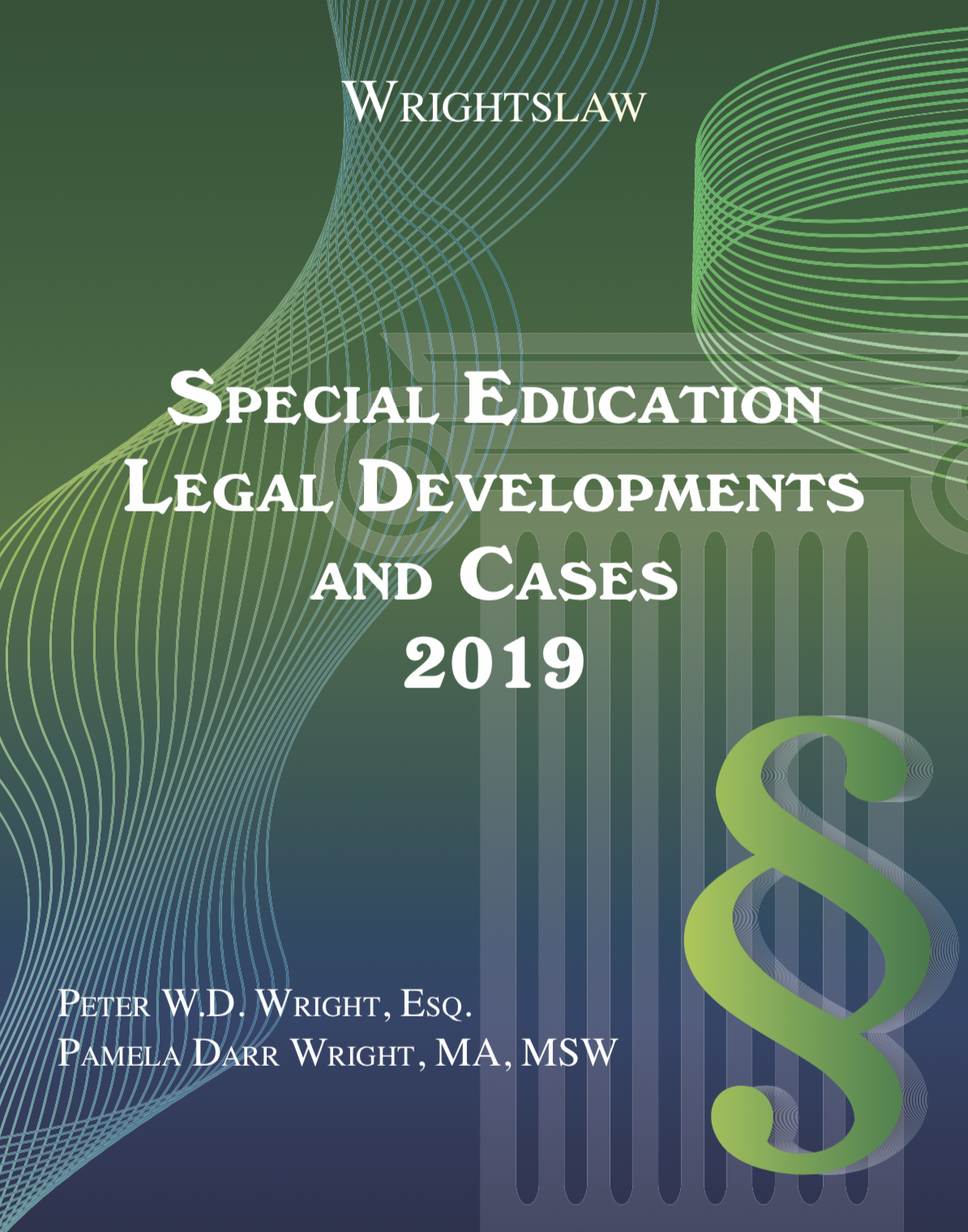Home
ISSN: 1538-3202
|
In
this Issue
|
|
What Does the Decision Mean to YOU? Parental Rights as
"Firepower to Match the Opposition" |
|
Subscribe
|
|
|
The
U. S. Supreme Court issued their decision in Schaffer
v. Weast on Monday, November 14.
The issue in Schaffer
was whether, in a due process hearing about a disputed IEP, the
parent must prove that the school’s IEP is not appropriate
or the school district must prove that their IEP is appropriate.
Should the party that attacks the IEP have the burden of proving that the IEP is not appropriate? Or, should the party that prepared the IEP, and has greater expertise and resources, have the burden of proving that the IEP is appropriate?
Justice
Sandra Day O'Connor wrote for the majority in the 6-2
decision. Justices Breyer and Ginsberg dissented for very
different reasons.
Justice O'Connor explained that the Court “granted certiorari
… to resolve the following question:
"At an administrative hearing assessing the appropriateness of an IEP, which party bears the burden of persuasion?”
"We hold no more than we must to resolve the case at hand: The burden of proof in an administrative hearing challenging an IEP is properly placed upon the party seeking relief. In this case, that party is Brian, as represented by his parents. But the rule applies with equal effect to school districts: If they seek to challenge an IEP, they will in turn bear the burden of persuasion before an ALJ." Read decision.
What
Does the Decision in Schaffer v. Weast
Mean to YOU?
As
Pete Wright explains in
What Does the Decision in Schaffer v. Weast Mean to You, the
implications of the decision will depend on where you live.
Some states already operate under the rule that the moving party
has the burden of proof. In other states, the school district
has the burden of proof. In these states, the decision should
have no significant impact.
If your state did not have a pre-existing state rule or regulation
that assigned the burden of proof to the school district, the
burden will be on the moving party. The article includes
a table that describes the impact by state.
Parent's
Rights and Protections as "Firepower to Match the Opposition"
The decision focuses on parental rights and safeguards, especially Prior Written Notice and changes in the reauthorized IDEA 2004.
In
What
Does the Decision in Schaffer v. Weast Mean to You?
Pete also describes due process hearings in states where the burden
is on the moving party (usually the parent) and in states where
the burden is on the school district.
Pete explains the single most important thing you must do to prevail
in a due process hearing ... regardless of who has the burden
of proof.
What
Does the Decision in Schaffer v. Weast Mean to You?
by Pete Wright
is also available as a printer-friendly
pdf document at https://www.wrightslaw.com/law/art/schaffer.impact.pwright.pdf
For background information about the case, decisions, pleadings,
amicus briefs and news, please go to the Schaffer
v. Weast page at https://www.wrightslaw.com/news/05/schaffer.weast.htm
What You Don't Know About IDEA 2004 CAN Hurt You!
Are you confused about changes in IDEA 2004? You aren't alone!
In response to your requests for IDEA 2004 training, we developed IDEA 2004: What You Don't Know CAN Hurt You!
IDEA 2004: What You Don't Know CAN Hurt You is a one-day, six hour Wrightslaw program that focuses on changes in IDEA 2004. Sample agenda
You will learn about:
- new requirements for evaluations, reevaluations, parental consent
- new requirements for IEPs, IEP teams, IEP meetings
- eligibility requirements for students with specific learning disabilities
- accommodations on high stakes tests, accommodations guidelines, alternate assessments
- new rules about discipline and manifestation reviews
- new procedural requirements and timelines, including the “Due Process Complaint Notice” and “Resolution (IEP) Session”
- implications of the Schaffer v. Weast decision
Learn about IDEA 2004: What You Don't Know CAN Hurt You. Learn about other Wrightslaw Training Programs.
Check the schedule to see if we are coming to your area.
The
Special Ed Advocate is a free online newsletter about
special education legal and advocacy issues, cases, and tactics
and strategies. Newsletter subscribers also receive "alerts"
about new cases, events, and special offers on Wrightslaw
books. Subscribe
| Law Library | Seminars & Training |
| Advocacy | Yellow Pages for Kids |
| No Child Left Behind | Free Newsletter |
| IDEA Reauthorization | Newsletter Archives |
Contact Info
Pete
and Pam Wright
Wrightslaw & The Special Ed Advocate
P. O. Box 1008
Deltaville, VA 23043
Website: https://www.wrightslaw.com
Email: newsletter@wrightslaw.com
This email was sent from the WRIGHTSLAW list to the email address: &*TO; To Unsubscribe
Wrightslaw
Books, Downloads, |
Wrightslaw Books
|
|








